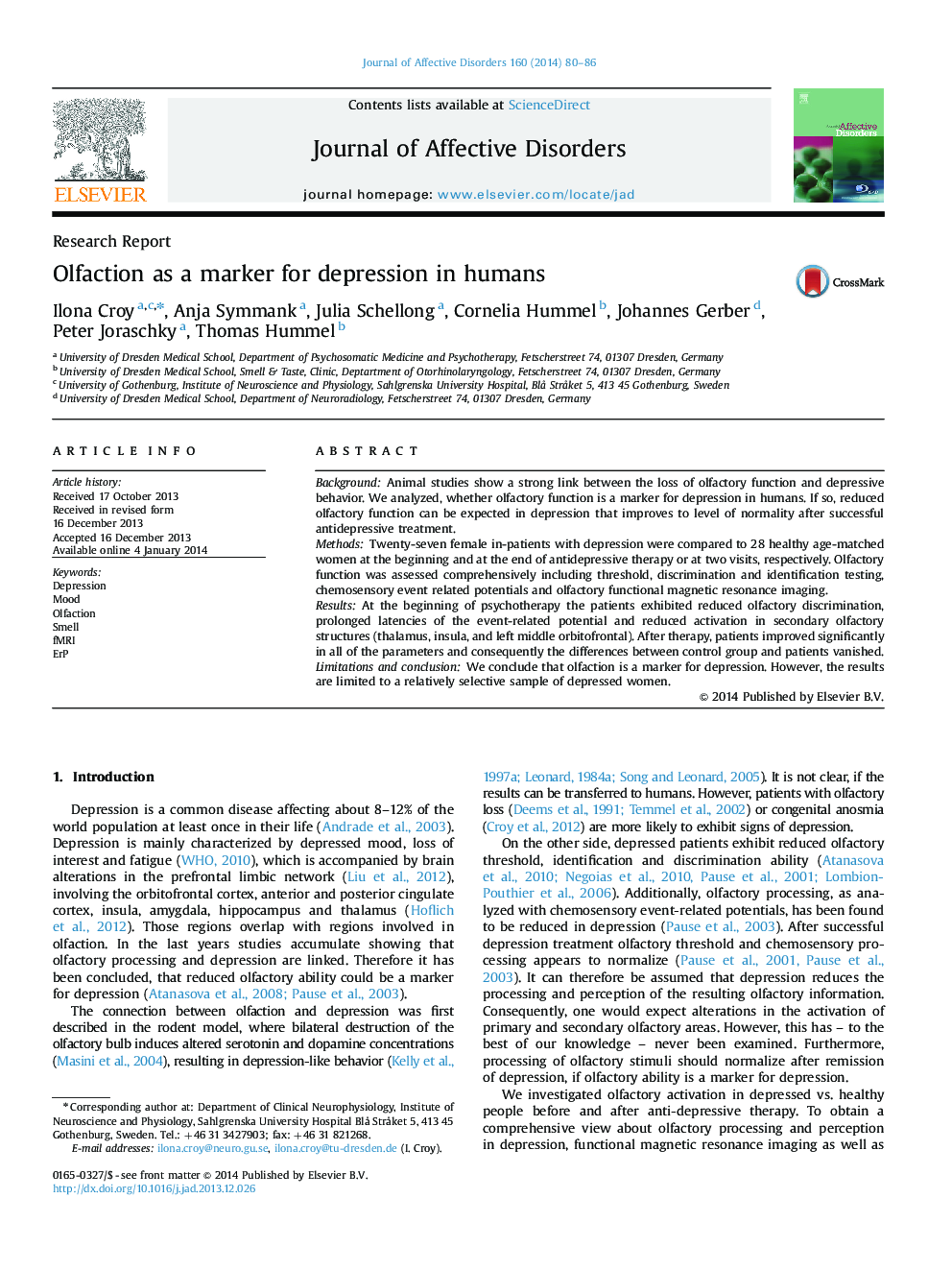| Article ID | Journal | Published Year | Pages | File Type |
|---|---|---|---|---|
| 6232613 | Journal of Affective Disorders | 2014 | 7 Pages |
BackgroundAnimal studies show a strong link between the loss of olfactory function and depressive behavior. We analyzed, whether olfactory function is a marker for depression in humans. If so, reduced olfactory function can be expected in depression that improves to level of normality after successful antidepressive treatment.MethodsTwenty-seven female in-patients with depression were compared to 28 healthy age-matched women at the beginning and at the end of antidepressive therapy or at two visits, respectively. Olfactory function was assessed comprehensively including threshold, discrimination and identification testing, chemosensory event related potentials and olfactory functional magnetic resonance imaging.ResultsAt the beginning of psychotherapy the patients exhibited reduced olfactory discrimination, prolonged latencies of the event-related potential and reduced activation in secondary olfactory structures (thalamus, insula, and left middle orbitofrontal). After therapy, patients improved significantly in all of the parameters and consequently the differences between control group and patients vanished.Limitations and conclusionWe conclude that olfaction is a marker for depression. However, the results are limited to a relatively selective sample of depressed women.
